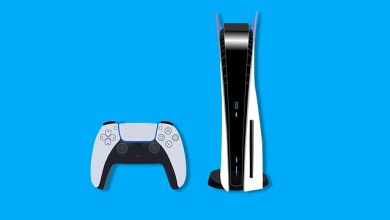Mobile Gaming In 2021 & Beyond, What Trends We Can Expect To See More Of?

Mobile gaming has been a hot topic for a number of years now, owing to its rapid growth. Add some technological advances, and environmental factors, and the trajectory looks to be sturdy in its upward move. So what are the trends we can expect to see more of?
Thanks to the accessibility of mobile phones, as opposed to PC’s and consoles, the mobile gaming segment has been the biggest beneficiary of the pandemic fueled growth of gaming to $174.9 billion in total revenue during 2020.
Having brought in revenues of over $77 billion during the course of the last fiscal year, the mobile focused front of the gaming industry has also benefited a great deal from its own dynamism in affording developers a cost-effective and time-efficient route from concept to market.
These factors have led to the proliferation of certain trends in the mobile gaming sector in recent months. Moreover, some of these trends have the potential to have a long lasting impact on the mobile gaming environment. Let’s take a look at some of these trends and what influence they might have on the direction of mobile gaming in the years to come.
Increased Adoption of 5G
Though the deployment of 5G technology was, for the most part, put on hold during the height of the Covid-19, one can expect to see a steady rise in adoption during 2021 as governments and economies see increased stability
This growth in the uptake of 5G infrastructure holds a lot of promise for mobile gaming. The lower latency and faster data transfer speeds should result in better gaming experience – from download times, to significantly reduced lag during multiplayer gaming.
There are a host of other benefits that could come from this. 5G infrastructure coupled with an upsurge in modern, high performance, mobile phone adoption may work to incentivise developers to put out more polished online gaming experiences for mobile players.
Gaming-as-a-Service Poised to See More Growth
As the lines between console and mobile gaming phone become blurred even further, one can expect to see increased use of services like Google’s Stream, and Microsoft’s Stadia as mobile gaming migrates to the cloud.
The greatest benefit that this will have for mobile gamers is being given the ability to take advantage of the cloud servers for graphics, AI, and some of the CPU’s processing work – lowering the hardware threshold for playing titles with higher demands. However, the technology may still be a few years away from universal adoption.
Except More Social Features
As mankind is a species that thrives in social groups, it was only natural that social distancing in the physical world would have an impact on how we interact on the internet, and gaming was no exception to this.
Besides the more spoken of Travis Scott Astronomical event, and the Lil NasX concert, there is noticeable growth in the use of in-game lobby areas where players mingle and show off their gear. One major title that seems to have identified this trend is Call of Duty Mobile.
The Success of Genshin Impact Being Blueprint For Others
A blazing success that captured the attention of gamers across multiple platforms, the accomplishments of Genshin Impact on mobile could have far reaching “impact” on mobile gaming.
Genshin Impact is a masterful blend of monetization and a console-like gaming experience on mobile that is sure to have rival game development studios in its native China and abroad scrambling in an attempt to replicate this potent combination.
Challenges To App Store Distribution Policies
The growth of mobile gaming as a serious revenue generator seems to have shifted the balance of power between developers and app distribution platforms like Apple’s App Store.
This is evidenced by the recent court battle between Apple and Epic, resulting in Apple’s introduction of the App Store’s Small Business Program, which sees Apple reducing its usual 30% take from developers who make less than $1 million annually to 15%.
Apple is not the only corporation to have recently experienced some disturbances as a result of this trend. In China, there were reports of a revenue related squabble between Huawei and Tencent that resulted in all of the developers’ games being removed from Huawei’s all store for a brief period.
To make matters worse for the app stores, both regions have seen an increase in cloud gaining services successfully circumventing app store restrictions. One example being GeForce’s Safari based cloud gaming platform. While in China, developers look to independent release as the best solution to revenue tug of war.






